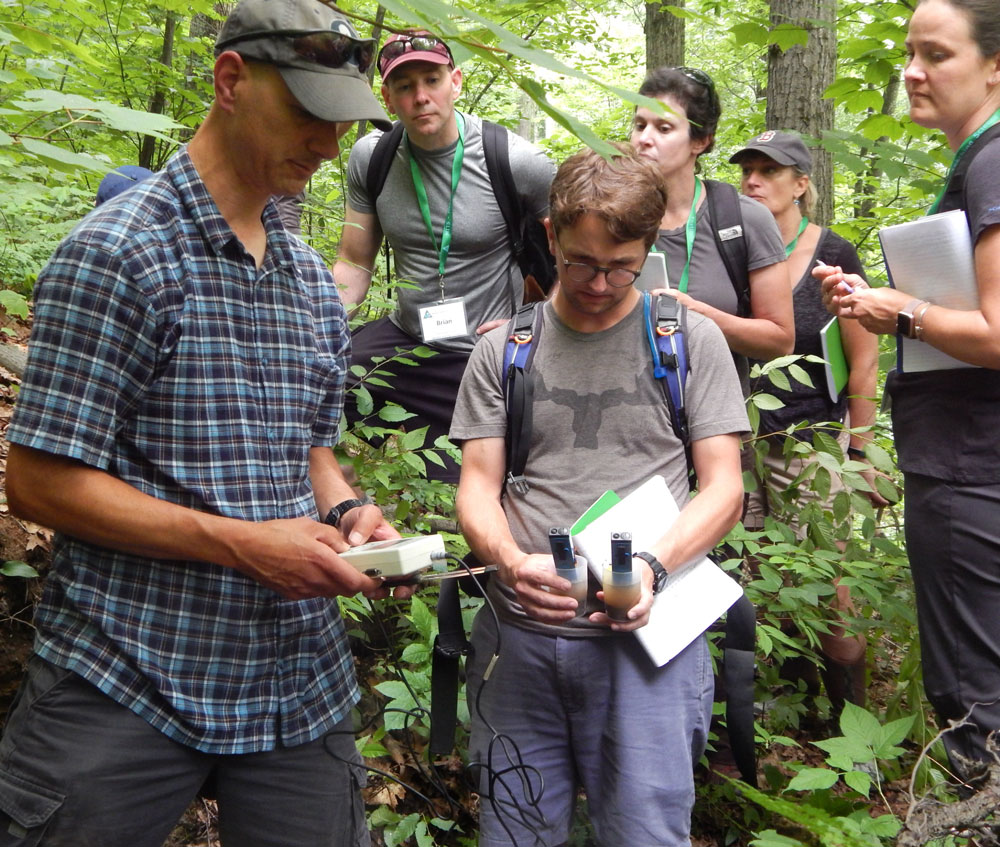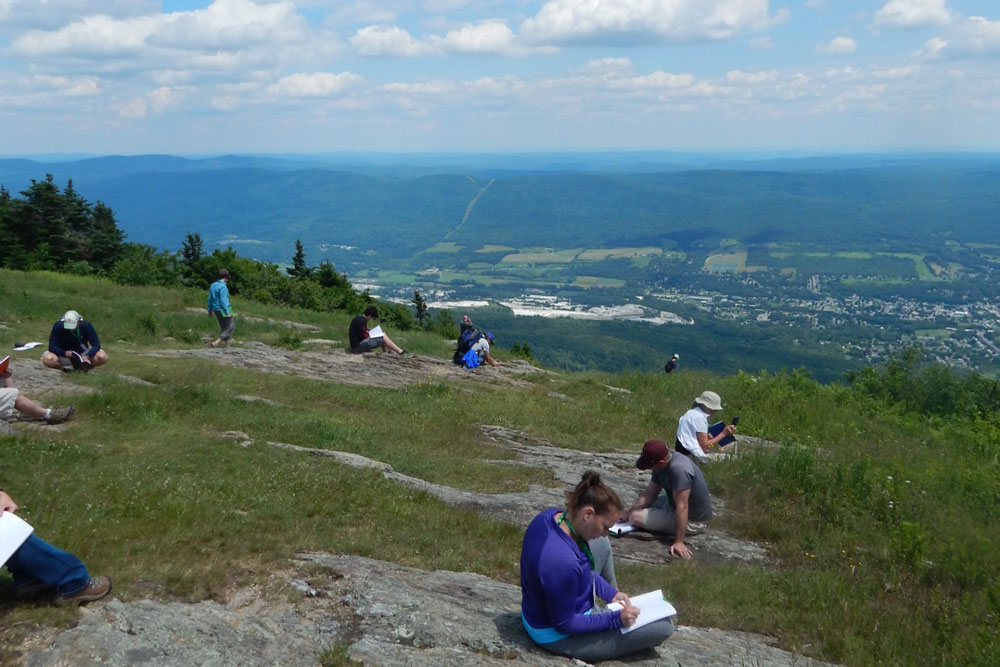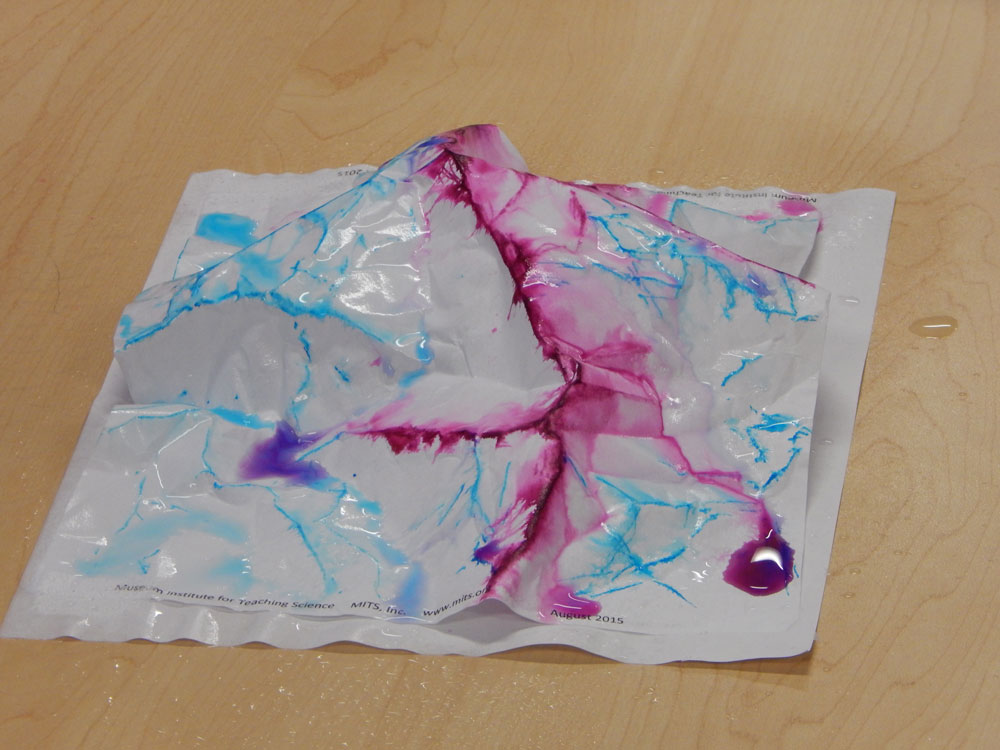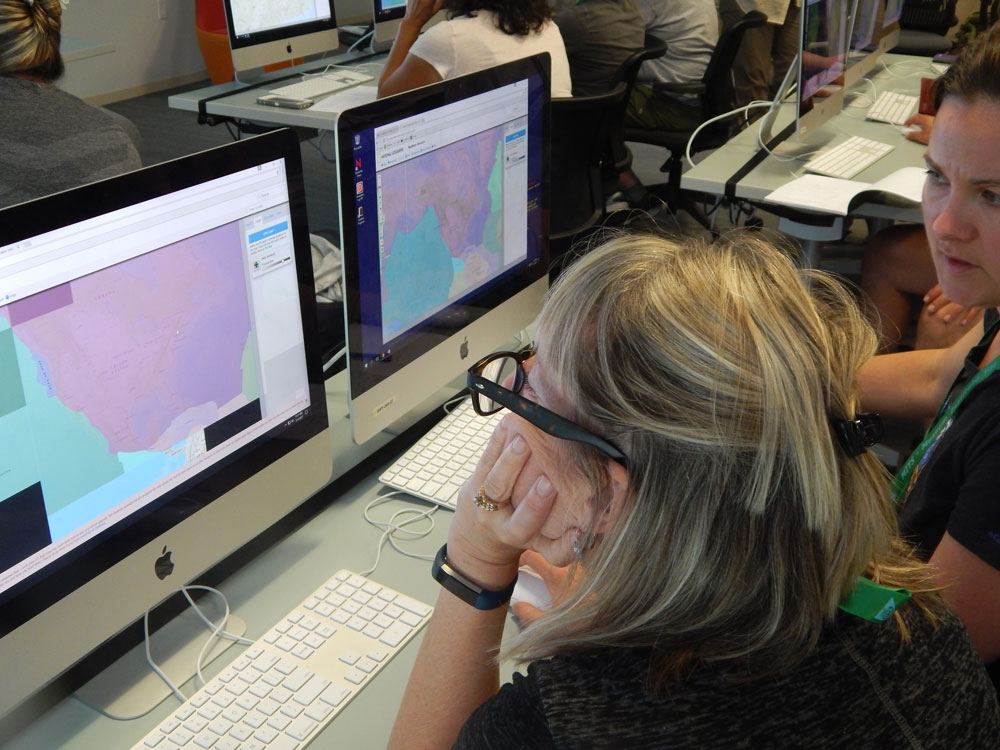Monday, October 2, 2017
For Immediate Release
Berkshire Region Teachers Explore the Berkshires from Top to Bottom
North Adams, MA – During the week of July 10-14, 2017, grades 3-8 educators joined the Museum Institute for Teaching Science (MITS)  for “Exploring the Berkshires: From the Top of its Mountains to the Bottom of its Ponds”. At this Summer Professional Development Institute, teachers engaged in interdisciplinary learning about the region’s geology, hydrology, and ecology, and strengthened their understanding of the 2016 revised MA Science and Technology/Engineering Curriculum Frameworks. Knowledgeable informal educators from the region guided the group’s work around one essential question: How does the earth change?
for “Exploring the Berkshires: From the Top of its Mountains to the Bottom of its Ponds”. At this Summer Professional Development Institute, teachers engaged in interdisciplinary learning about the region’s geology, hydrology, and ecology, and strengthened their understanding of the 2016 revised MA Science and Technology/Engineering Curriculum Frameworks. Knowledgeable informal educators from the region guided the group’s work around one essential question: How does the earth change?
The institute took advantage of many picturesque settings in the Berkshire region. To study the geosphere, teachers spent time making observations of rock types found atop Mount Greylock  and testing soils in Hopkins Memorial Forest. On a canoe trip on the Housatonic River, teachers physically experienced the role the hydrosphere plays in shaping the land. During a visit to Tamarack Hollow Nature and Cultural Center, the group learned more about the biosphere by identifying local plants and interpreting signs of wildlife. At Bear Swamp, a Trustees of Reservations site in Ashfield, the experiences of the week came together when teachers selected a plot of land to investigate, and identified how the geology, hydrology, and ecology interplayed to create the unique microhabitat.
and testing soils in Hopkins Memorial Forest. On a canoe trip on the Housatonic River, teachers physically experienced the role the hydrosphere plays in shaping the land. During a visit to Tamarack Hollow Nature and Cultural Center, the group learned more about the biosphere by identifying local plants and interpreting signs of wildlife. At Bear Swamp, a Trustees of Reservations site in Ashfield, the experiences of the week came together when teachers selected a plot of land to investigate, and identified how the geology, hydrology, and ecology interplayed to create the unique microhabitat.
“The outdoor programming was terrific. Both the Mount Greylock and waterfall sites offered outstanding opportunities to observe the various systems that drive the constantly changing landscape,”  commented a teacher.
commented a teacher.
Educators engaged in “hands-on, minds-on” activities that required them to use the Science and Engineering Practices throughout the institute. During these inquiry-based activities, teachers at first found themselves experiencing frustration and wanting definitive answers when new content was introduced. They reflected on the similarity of their responses to some students’ reactions to new approaches in the classroom. With support from instructors from the Trustees of Reservations, the Center for Learning in Action at Williams College, the MA Department of Conservation and Recreation, and Massachusetts College of Liberal Arts, participants became more comfortable with open-ended investigations, and were able to identify the benefits of inquiry-based learning.
On the final day of the institute, the teachers created a digital map to share the story of their learning over the week.  Text, photos, songs, and websites were all used to communicate about the experiences that the teachers found most meaningful. Some teachers focused on content stories, like identifying their first piece of quartzite, while others recalled how open-ended learning had inspired them. The educators walked away with many ideas to implement in their own classrooms, as well as a network of peers with which they can continue sharing resources.
Text, photos, songs, and websites were all used to communicate about the experiences that the teachers found most meaningful. Some teachers focused on content stories, like identifying their first piece of quartzite, while others recalled how open-ended learning had inspired them. The educators walked away with many ideas to implement in their own classrooms, as well as a network of peers with which they can continue sharing resources.
###
The Museum Institute for Teaching Science specializes in providing hands-on, minds-on, inquiry-based STEM professional development for formal and informal educators. For more information, visit www.mits.org or call 617-328-1515.
